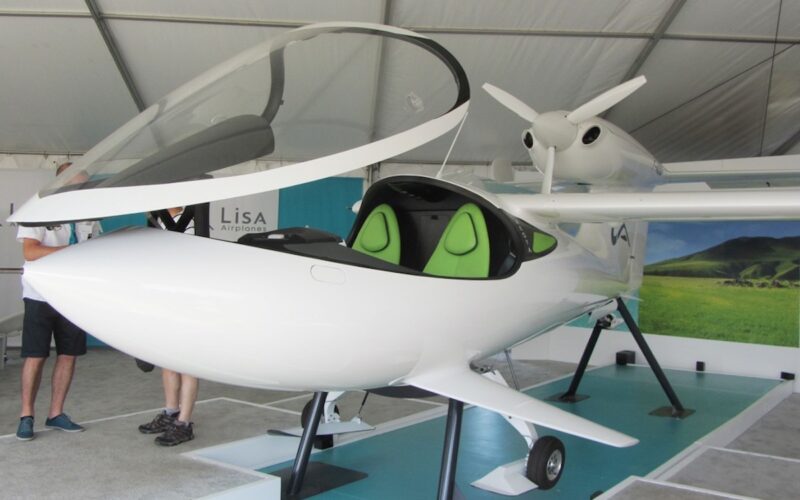The picturesque town of Annecy, at the foot of the French Alps, seems like an unlikely setting for an industrial property dispute with geopolitical ramifications. However, this is exactly what is happening following the winding down of LISA Airplanes, a French seaplane startup.
LISA Airplanes spent the last couple of decades developing what is said to be the only seaplane in the world that stands on foils: a two-seater, single-engine amphibious aircraft called “Akoya”. However, the uniqueness of this product, as well as backing from Chinese investors who took a majority stake in the company in 2013, has not prevented LISA Airplanes from closing.
In January 2023, a trade court in Annécy decided that LISA Airplane’s assets could be sold to Zheilang Xingxle General Aviation Industry, a Chinese company, sparking controversy.
L’Hydroptère 2.0 SAS, another French startup, which had unsuccessfully bid for the same assets, warned that advanced naval and aerospace technology developed in France risked ending up in the hands of a foreign power.
Key in this matter is the foil technology developed by LISA Airplanes. Foils are thin, fin-like surfaces that protrude from the hull of a ship or, in this case, a seaplane in order to keep contact with the surface of the water to a minimum. This allows the craft in question to move fast on water, almost skimming its surface.
L’Hydroptère 2.0 is now disputing the sale of LISA airplanes. The French firm is also working on foil technology, but to develop a high-speed sailing boat that reduces friction with the water to a minimum when at sea.
“When we learned about LISA Airplanes, we immediately saw the importance of its technology, both for aerospace and naval applications, including in the domain of defense,” Gabriel Terrasse, CEO of L’Hydroptère 2.0 told AeroTime.
Terrasse outlined how he sees potential for foils to be fitted into seaplanes larger than the “Akoya”, such as those used in search and rescue missions or for aerial firefighting. Fitting the aircraft with foils could allow them to operate in rougher seas and require less space to take off.
In its attempt to block the sale, Terrasse has enrolled a number of industry organizations, including France Clusters, which gathers some 80,000 French businesses, and Neopolia, a major French business organization from France’s Atlantic regions. The organizations are arguing that in addition to the potential geostrategic derivatives of the sale, retaining these industrial capabilities in France is important for the country’s naval and aerospace engineering industries.
The case has also caught the eye of some of the country’s politicians, with senator Marie-Noëlle Lienemann filing a formal request at the French Senate in Paris, urging the government to look into the matter and potentially overrule the sale decision.
In the meantime, L’Hydroptère 2.0 has appealed the first decision, which was made by a local court, to award LISA Airplanes’ assets to the Chinese investors. These include patents, blueprints, machinery and the third Akoya prototype.
A decision from the appeals court in Chambéry is expected by June 1, 2023.

